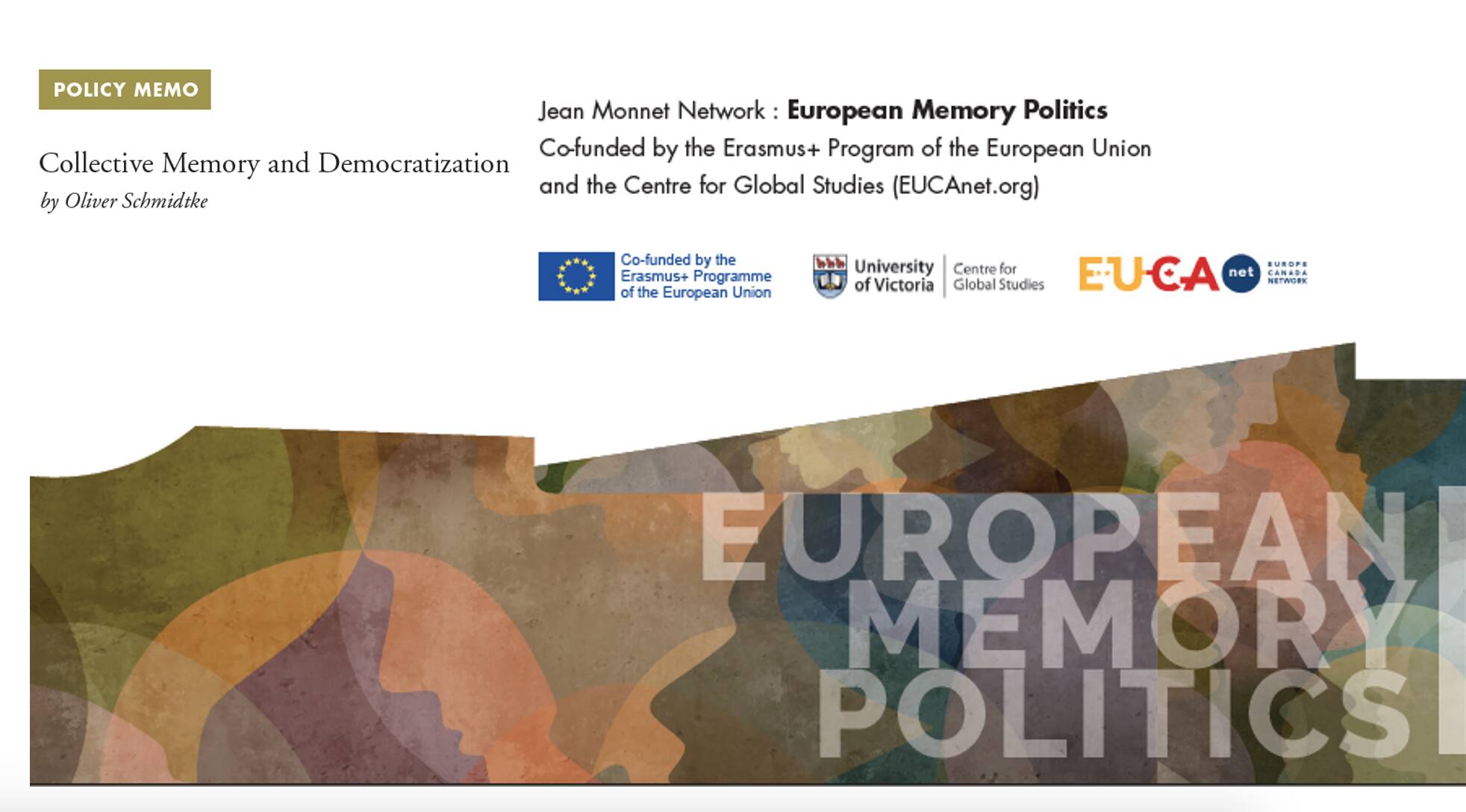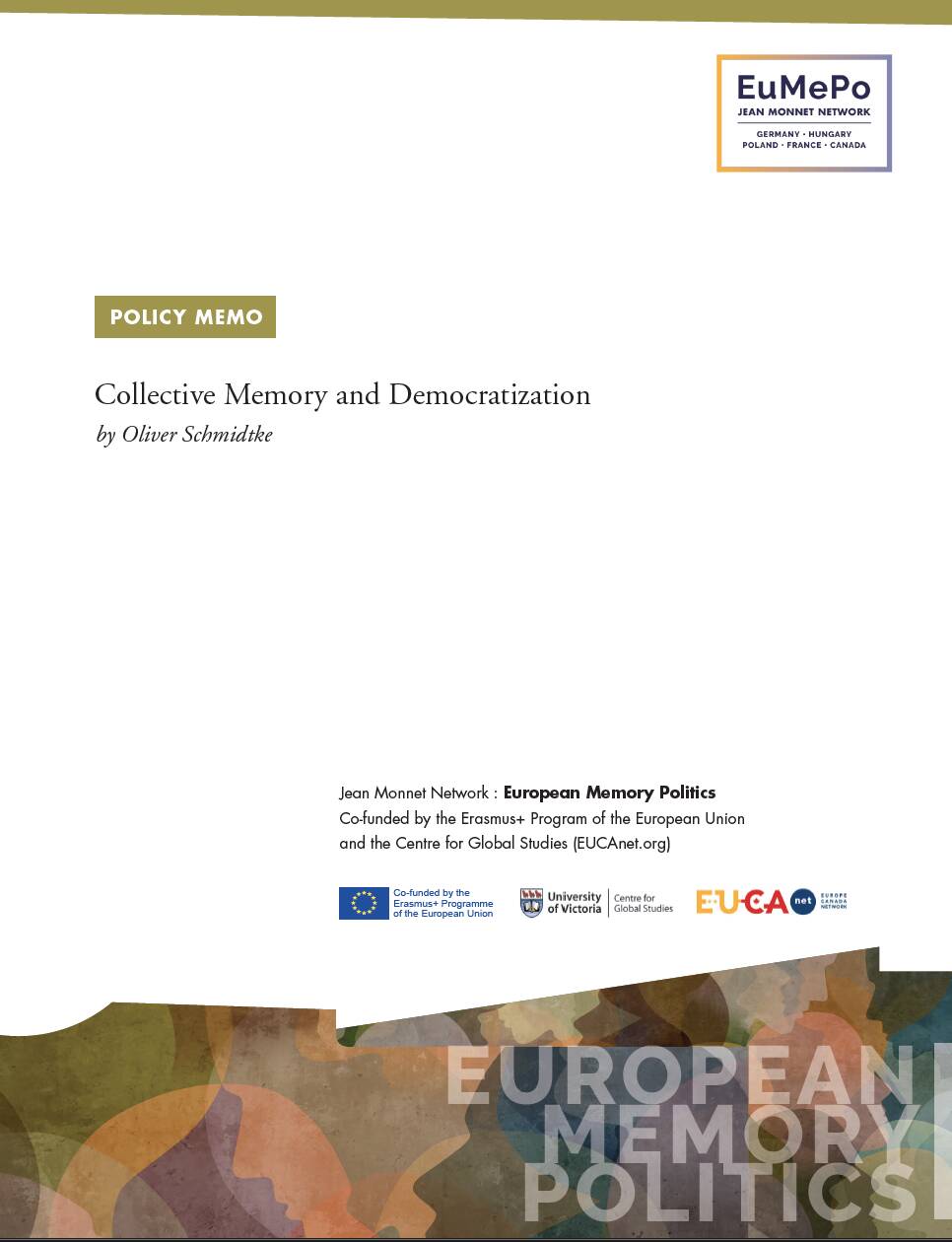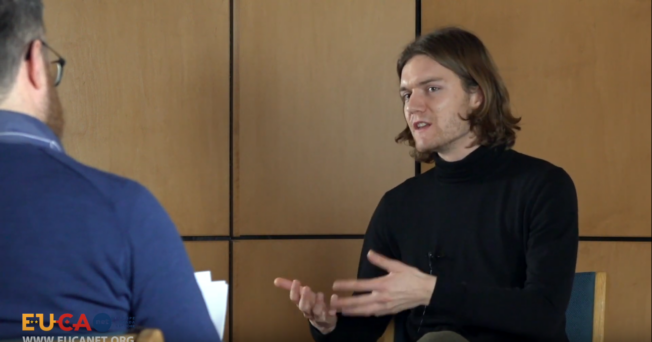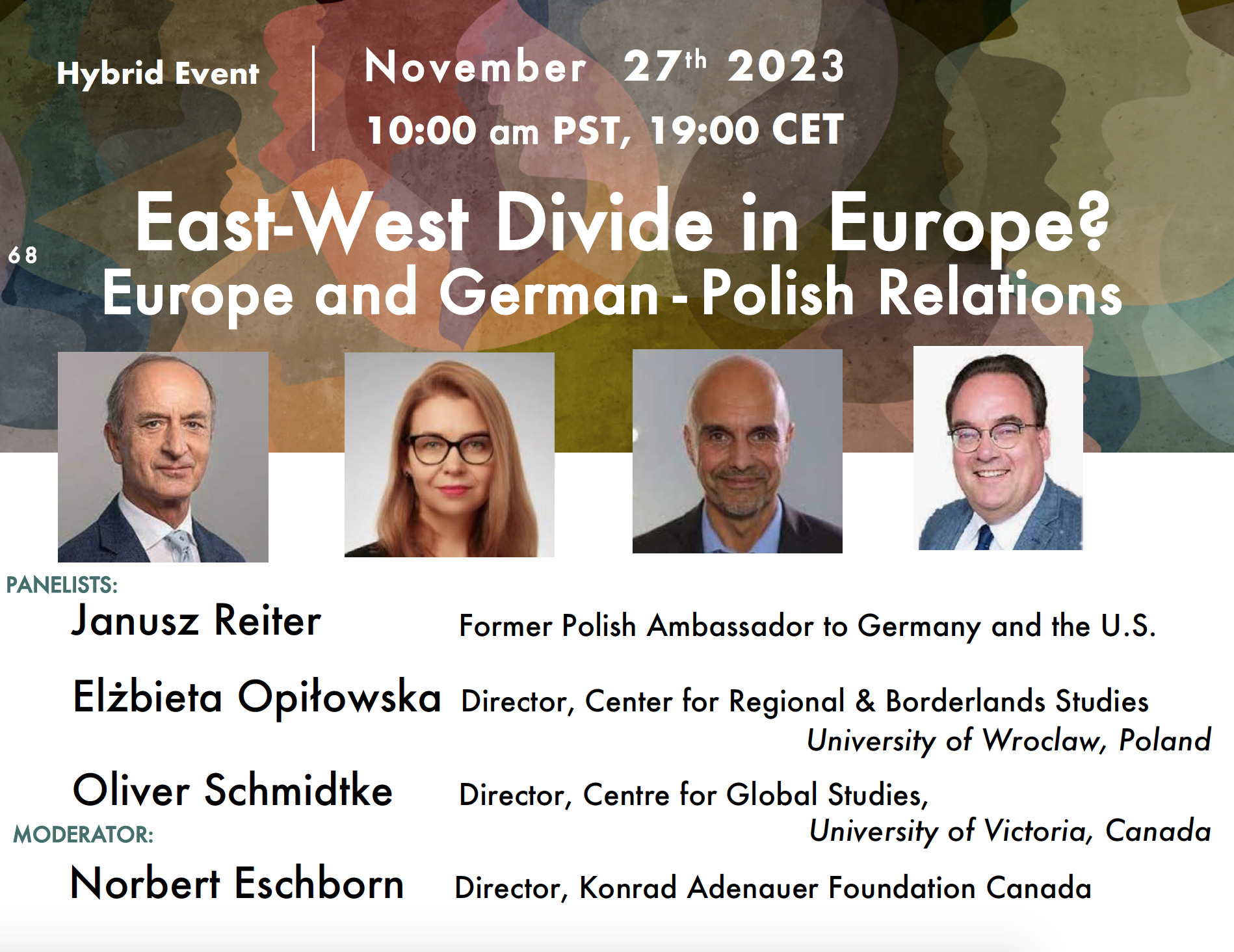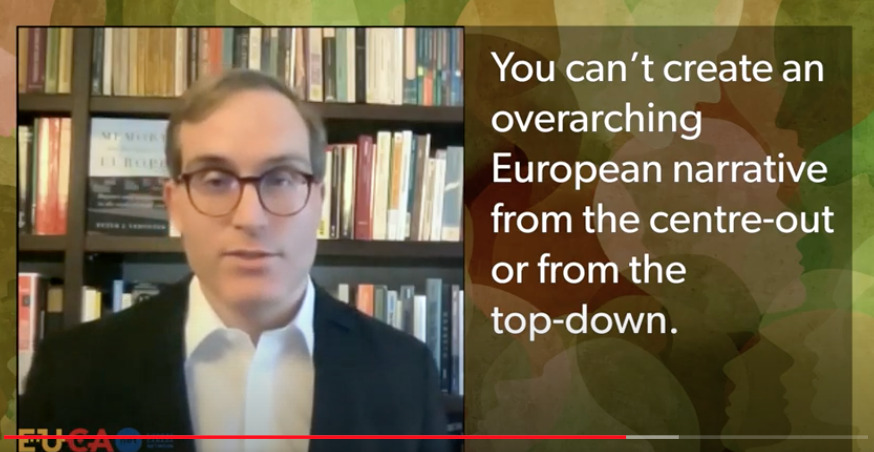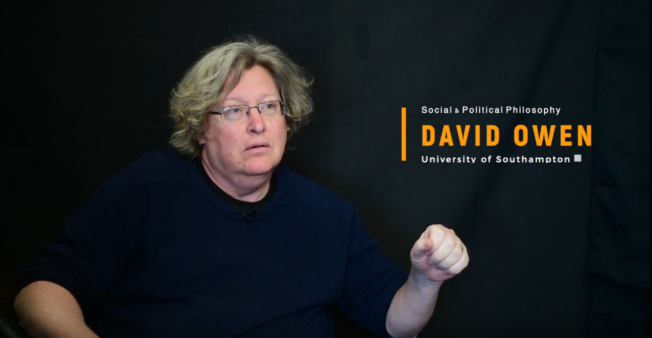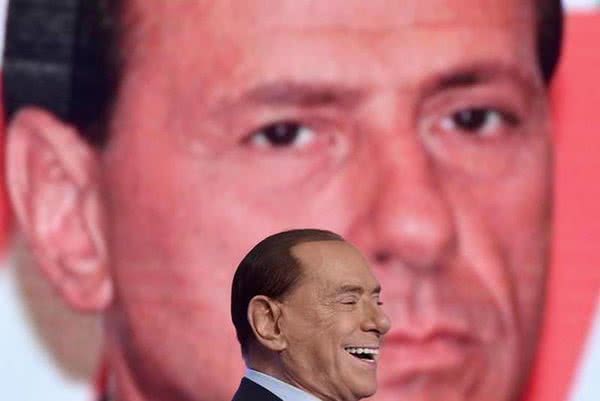Collective Memory and Democratization – Policy Memo
Oliver Schmidtke, Director Centre for Global Studies, University of Victoria
Collective memory and democracy are fundamentally linked. In historic narratives, societies envision their collective identity and the principles on which their polities are governed. Based on a comparative study as part of the Jean Monnet Network on Memory Politics, this policy memo suggests that commemorating a nation’s past should not be the exclusive domain of state institutions. Rather, the vibrancy of democracy depends on opening public debates on historical narratives and accounts of a shared past to civil society engagement and contestation. Evidence from various national contexts in Europe suggests that civil society groups are critical for giving voice to those regularly neglected in national narratives and in moving authorities towards the recognition of past injustices. While debates on historical narratives could be divisive, they are likely to contribute to deepen democratic deliberation and engagement.
The key policy recommendation of this policy memo is to encourage state actors to support an open debate on the country’s national past and not to obstruct in particular civil society actors in addressing historical narratives and uncomfortable episodes of past injustices.
